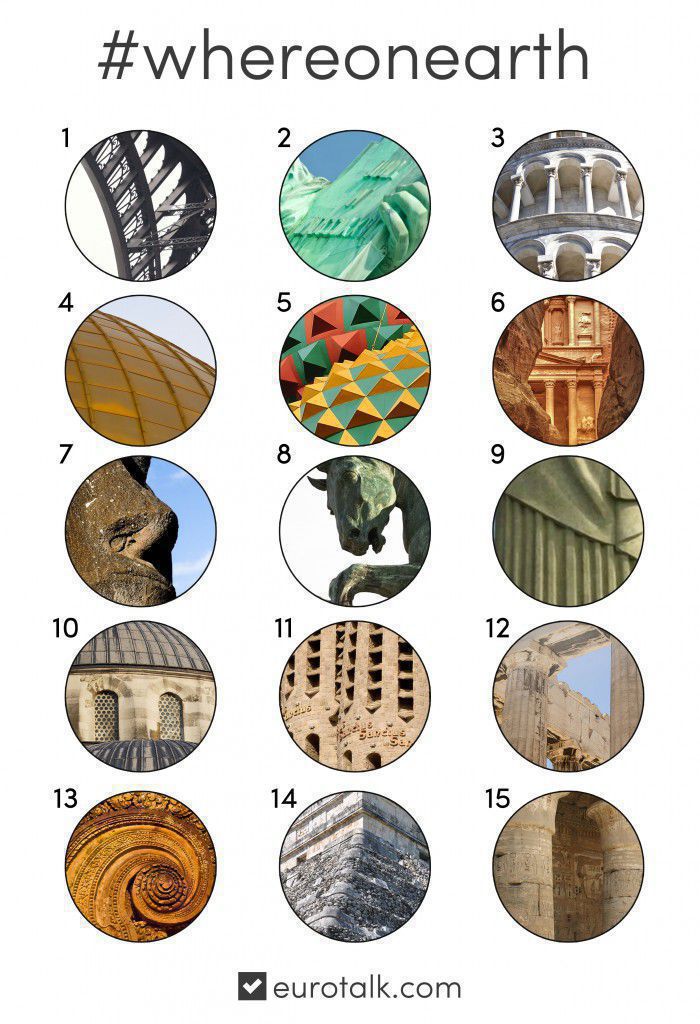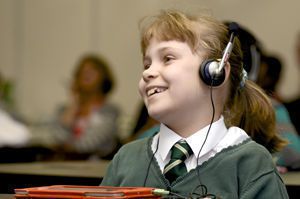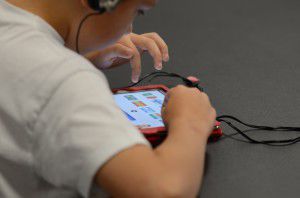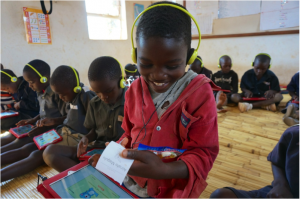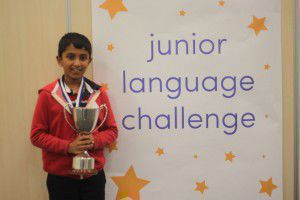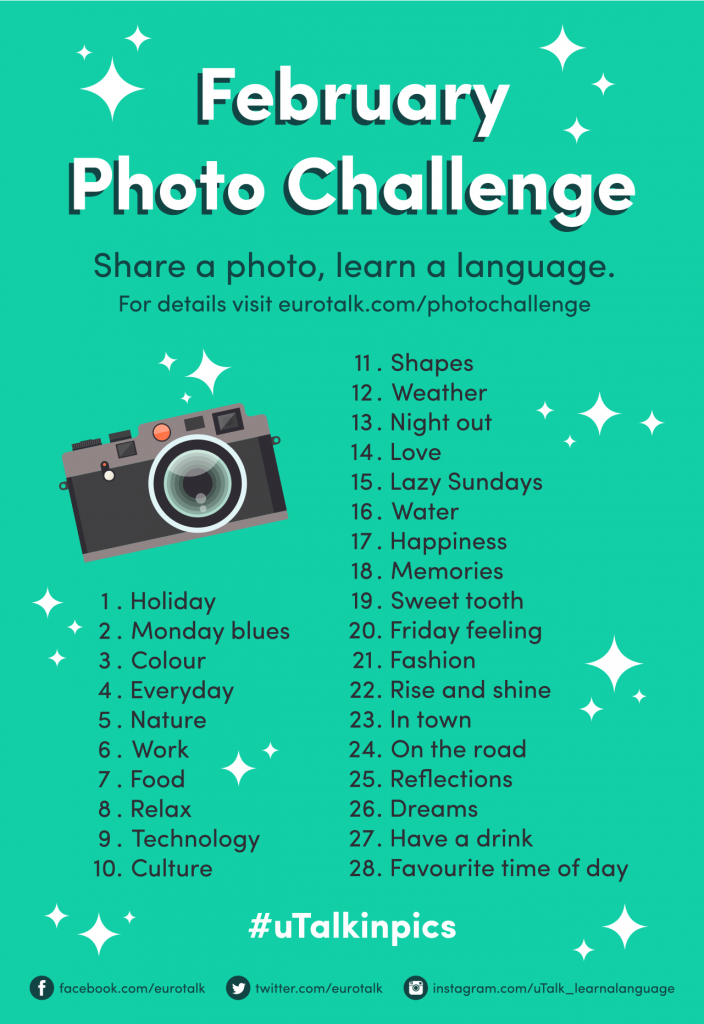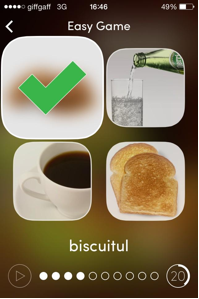How do you say Llanfairpwll…?
Everyone was blown away the other day when Liam Dutton managed to effortlessly pronounce the longest ever Welsh place name on live TV: Llanfairpwllgwyngyllgogerychwyrndrobwllllantysiliogogogoch.
Anything he can do…
I don’t know about you, but here at the EuroTalk office we enjoy a healthy challenge, and this looked like just the sort of thing to get our teeth into! For all those of you who’ve seen our video… Okay, maybe it didn’t go exactly according to plan, and didn’t sound entirely as fluent as Liam Dutton’s version, not to mention that our varying collections of vaguely Welsh-sounding syllables probably didn’t mean anything at all in Welsh, let alone bore a resemblance to the actual meaning of the word, which is (take a breath): ‘Saint Mary’s Church in the hollow of the white hazel near a rapid whirlpool and the Church of St. Tysilio of the red cave’.
Still, practice makes perfect, and this was just our first time. If anyone would like to try to do it better than us (which is probably not too much to ask), why not enter out competition to win a FREE Premium Welsh uTalk app. We’ll be picking the winner based on the creativity of the video, and your attempt to pronounce the word. To enter, tweet us @EuroTalk, post it on our Facebook page or email it to challenge@eurotalk.com by Friday 25th September.
So how should we have pronounced it?
To make it slightly easier, here’s a few pointers we used as to how to pronounce it: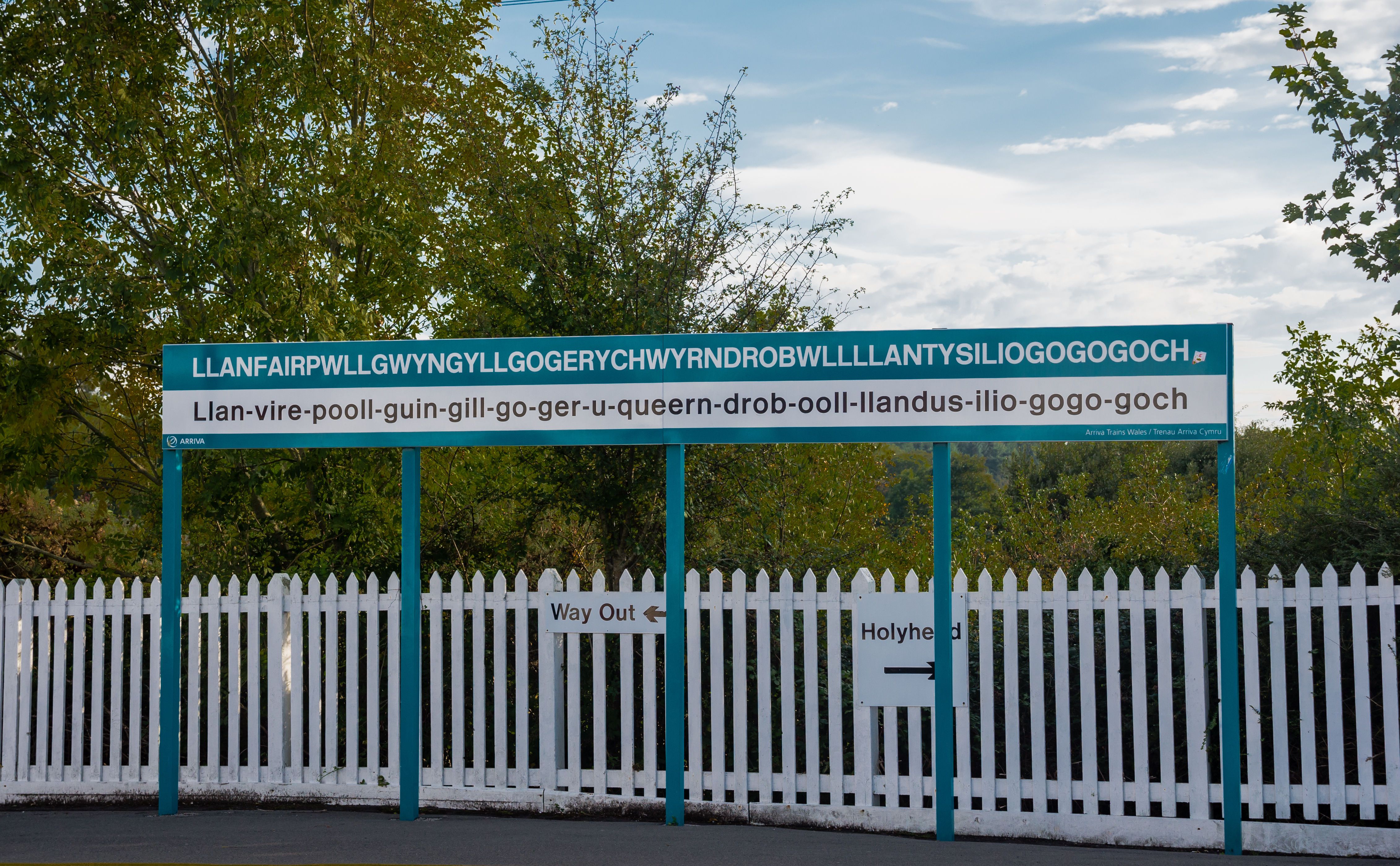
1. It helps to break the word down into bite-sized chunks: Llan – fair – pwll – gwyn – gyll – go – ger – ych – wyrn – drob – wll – llan – ty – silio – go – go – goch
2. Some of the letters have different pronunciation in Welsh to how you would say them in English. For example:
- the ‘f’ in ‘fair’ is pronounced more like a ‘v’, to make ‘vire’
- the ‘y’ in ‘gwyn’ i pronounced more like an ‘i’, to make ‘gwin’
- the ‘w’ in ‘pwll’ is more of an ‘oo’, to make ‘pooll’ AND
- the ‘ll’ in ‘pwll’ is more of an aspirated l (keep the tip of your tongue on the roof of your mouth as you say ‘l’, then blow the air over the top and sides of your tongue)
- the ‘ch’ in ‘goch’ is the same as in the Scottish ‘loch’
Taking that all into account, you end up with something which to English speakers looks a bit more like this:
Chlan- vire- puchl- gwin- guchl- go- ger- uch- wirn- drob- uchl- chlan- ti- silio- go- go -goch
So now that you know it, why not have a go at recording it yourself?
Nat
Friday Fun: Where on Earth…?
How well do you know your world monuments? Let’s find out!
Here are 15 landmarks from around the world… can you identify them? We need either the country or the city for each, or for bonus points, the name of the monument. (Okay, maybe not actual bonus points – but we’ll be really impressed.)
If you’d like to play, email your answers to challenge@eurotalk.com – get them all right and we’ll send you one of our fabulous uTalk mugs!
To get a closer look, click on the image to make it bigger.
Good luck, and Happy Friday!
5 reasons to join the Junior Language Challenge
If you’re a regular follower, you’ll have heard us talk in past years about the Junior Language Challenge, our annual competition for primary school children across the UK. This year’s challenge is now underway, and here’s why we want every child who’ll be aged 10 and under on 1st September 2015 to join in:
1. It makes languages fun
All parents and teachers know that children learn best when they’re enjoying themselves (as we all do – not just children!). So the JLC uses games and the competition element to make languages fun. We want every child who takes part in the JLC to come away from it with a new love of languages, and eager to continue with them as they move on to secondary school.
2. It introduces children to languages they’ve never heard of
Last year, children taking part in the competition learnt Italian, Japanese and Somali. This year, they’ll be starting with Portuguese. We like to offer exciting, different languages – because once a child knows they can learn Chichewa, suddenly French and Spanish won’t seem so daunting. And it encourages them to learn about other cultures and countries, some of which they may never have heard of before.
3. It doesn’t take up loads of teacher or parent time
We know teachers and parents are busy people. That’s why the JLC is designed to be as easy as possible to set up. We’ve even created this letter to parents, which explains what it’s all about. Everything’s done online, so once you’ve got them registered, children can login on any computer and keep learning. Our system records all the scores, so the only thing we need from the grown-ups once they’re up and running is encouragement!
4. It’s for charity
The JLC doesn’t just benefit the children who take part; it also raises money for our charity, onebillion. They’re doing fantastic work creating apps to transform the education of one billion children in developing countries, and we’re proud to support them. Each child who enters the competition pays a £5 entry fee, all of which is donated to the organisation.
5. There are some great prizes on offer
The JLC champion wins a once-in-a-lifetime family holiday to Africa (our 2013 winner, Ella, wrote us this fantastic report about her trip to Malawi). There are also prizes for the runners-up – in previous years these have included iPods and cameras – and goodie bags for everyone who makes it through to round 2 and beyond, including t-shirts, pens, and other treats, as well as discounts on EuroTalk software for the children and their schools.
Registration is open now for school groups and individuals. Teachers can register their school for free, to take a look and try out the games before deciding whether to sign up any pupils.
If you’d like more details about the Junior Language Challenge, or to join in, visit the website or email us.
And if you know anyone else who might be interested, please spread the word!
Good luck to everyone taking part this year. Or should we say Boa sorte 🙂
The EuroTalk February photo challenge
Following the success of this month’s uTalk challenge, we’ve decided to have another one! But this time it’s open to everyone, and hopefully requires a bit less brain strain…
Introducing the EuroTalk February photo challenge!
How does the challenge work?
1. Each day, starting from 1st February, you’ll get a new theme, and you need to share a photo that reflects that theme on one or more of your social networks – more on that in a second. Try and interpret the theme in a fun, creative way, as we’ll be sharing our favourites over the course of the month, choosing a Photo of the Day each day and selecting an overall winner at the end of the month.
2. When you share your photo, tell us how to say whatever’s in your picture, in another language. It can be any language you like; you can even do a different one every day if you want to, as long as it’s not your own. And remember to tell us which language it is too!
3. Use hashtag #uTalkinpics to let everyone (including us!) know you’re taking part in the challenge.
Example:
My photo for #Holiday – sunset, or der Sonnenuntergang in German 🙂 #uTalkinpics
Where should I share my photos?
4. You can share your photos on whichever social network you like – Facebook, Twitter, Pinterest, Instagram, anywhere… But to be considered for Photo of the Day and overall winner, you’ll need to use one of the following:
- Tweet us @EuroTalk
- Tag us on Instagram: @uTalk_learnalanguage
- Post on our Facebook page
- Email your photo to us at challenge@eurotalk.com if you don’t belong to any social networks
And remember to use hashtag #uTalkinpics
What if I miss a day?
5. If you miss a day, or don’t find out about the challenge until it’s already started, it’s no problem. You can catch up by posting more than one picture per day – or just skip that day altogether and carry on.
How can I win?
6. We’ll choose our Photo of the Day the following morning (or possibly on Monday for photos submitted over the weekend), to allow entries right up to the end of the day from every time zone. This will appear on Facebook, Twitter and Pinterest, as well as in a weekly round-up here on the blog, so be ready to share your glory with the world!
7. At the end of the month, we’ll choose our overall winner to receive a cool prize. This will be someone who we feel has really got into it and had some fun. The winner will be chosen by the EuroTalk team and our decision is final 🙂
Spread the word!
8. Please share the challenge with friends, and let’s get the world talking lots of different languages…
Good luck, and have fun – we can’t wait to see your photos!
My uTalk Romanian journey so far
Having a look at the uTalk challenge scoreboard in the EuroTalk office, it looks like I’m some way behind with my Romanian learning. But I haven’t give up yet! Here’s what I’ve learned so far about this language.
1. It’s a lot like Italian
This is very helpful for me, as I already understand a reasonable amount of Italian (even if it’s only from watching too many episodes of Inspector Montalbano…), so words like ‘la rivedere’ (goodbye, like the Italian arrivederci), ‘buna seara’ (good evening, like buona sera in Italian) and many colours and adjectives are very similar (‘urata’, ugly, sounds like the Italian word brutta, and many others like ‘plin’/pieno, ‘trist’/triste, ‘rapid’/rapido, ‘negrul’/nero or ‘verdele’/verde). Numbers are also very close to those in Spanish or Italian.
2. Sometimes you can make words just by adding ‘ul’ to the end
Ioana helpfully informs me that this is just the masculine ‘the’ (the feminine is ‘le’), but it still seems like a reliable strategy to guess words. After words such as ‘trenul’, ‘aeroportul’, ‘pasaportul’, ‘doctorul’ and my personal favourite ‘biscuitul’, I started guessing other words like ‘vinul’ (correct!) and ‘mapul’ (sadly incorrect), which occasionally works.
3. The speaking game is really fun and addictive, and probably the best way to learn
I don’t know about other people, but for me, producing the language is the key to remembering it. So, speaking or writing the language is key. Repeating the phrases and then using my own recordings to identify the pictures is weirdly fun and helps me to remember better than simple guessing of pictures in the easy or hard games, which encourage recognition but not reproduction. Of course the ultimate test is the recall game, where you have to remember and say the word or phrase yourself and then check it. These games can take a while to get 100% on, but are an excellent tool.
4. You have to learn to make some brand new sounds
Romanian has a few fun letters that we don’t have. ‘â’ (with a little hat) sounds like an ‘uh’, not an ‘a’ at all. So ‘Cât e ceasul?’ (what’s the time) isn’t pronounced how it looks to English speakers, but like ‘Cuht e chassul’, because the â is a different letter, and ce is a ‘ch’ sound like in Italian. It also has a funny ‘I’ which looks like this: î and sounds like another ‘uh’, which is difficult to describe. This sound is in words like ‘închis’ (closed) which sounds more like ‘unkees’. These sounds are pretty fun to pronounce if you ask me, and Ioana says I sound ok, which I put down to repeating after the native speakers in uTalk.
5. They invented crazy words for vegetables that make no sense!
Ok, maybe that’s a bit harsh, but my knowledge of French, Spanish, Italian, English and German can’t help me when it comes to learning the names of vegetables that have names like ‘bamele’, ‘ardeiul’, ‘porombul’ and ‘varza’, which don’t relate to any language I know. They can’t even call zucchini zucchini: it’s actually ‘dovleceii’.
Somehow I don’t think I’m going to beat Nat in the uTalk challenge, but I’m having fun with Romanian anyway!
Alex
(Editor’s note: it turns out nobody could beat Nat, who completed the challenge in Icelandic a couple of days ago. She’s now considering which language to learn next – any suggestions?)
